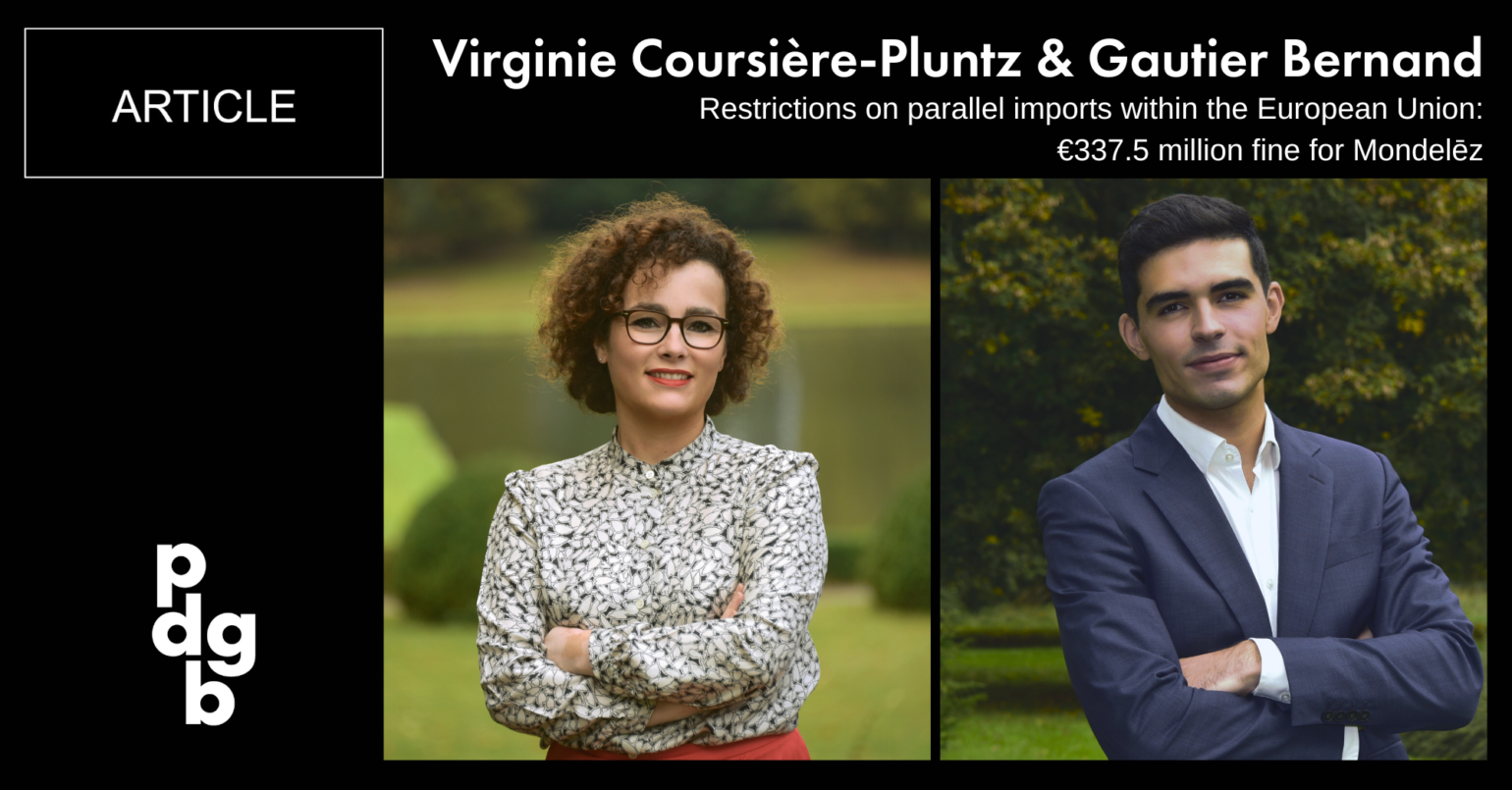LEGAL NEWS – Restrictions on parallel imports within the European Union: €337.5 million fine for Mondelēz

Restrictions on parallel imports within the European Union: €337.5 million fine for Mondelēz – Virginie Coursière-Pluntz and Gautier Bernand
On May 23, the European Commission announced that it had fined global manufacturer Mondelēz (inter alia Milka, Toblerone, Côte d’Or, Cadbury, Tuc, Lu, Oreo and, prior to 2015, Jacobs and Velours Noir) 337.5 million euros for implementing artificial barriers to wholesale sales of chocolate, biscuits and coffee within the EU, through distribution agreements and abusive practices contrary to the prohibition of anti-competitive practices.
Firstly, with regard to the practices sanctioned on the basis of the prohibition of anti-competitive agreements (Article 101 of the Treaty on the Functioning of the EU), Mondelēz was found guilty of having entered into distribution agreements with its wholesalers containing export restrictions to other EU member states, between 2012 and 2020.
More specifically, these export restrictions consisted of:
- a restriction on the territories and customers to which its wholesalers could resell Mondelēz products, in order to partition national markets and be able to maintain high prices in some of them, such as Belgium;
- a restriction on passive sales, consisting either in an outright ban on supplying products to retailers outside the Member State for which each had an exclusivity, or in an obligation to obtain Mondelēz’s prior agreement to respond to unsolicited supply requests from retailers located in other Member States.
A finding of an anti-competitive agreement presupposes the demonstration of a concert of wills between separate undertakings. As is often the case in this type of case, the Commission considers that the cartel practices are constituted between Mondelēz and the wholesale distributors, since the latter have accepted the contractual conditions proposed by Mondelēz. Yet, only Mondelēz has been condemned for these practices.
Secondly, Mondelēz was penalized for unilateral practices sanctioned on the basis of abuse of a dominant position (Article 102 TFEU):
- for refusing to supply a German intermediary in order to hinder the resale of the products in Member States where the prices of Mondelēz products are higher;
- for having stopped supplying its Cote d’Or tablets to the Dutch market in order to prevent their re-export to Belgium.
The European Commission considers that the implementation of all these practices was aimed at preventing porosity between national markets, with the effect of harmonizing prices within the EU market, to the detriment of consumers.
As Executive Vice President Vestager points out, these practices have had the effect of annihilating the beneficial effects of the Single Market: retailers must be able to buy products in other Member States when prices in those States are lower than in the Member State in which they usually operate.
Sanctioning practices that lead to such geographic partitioning of national markets is not new to the Commission’s decision-making practice, as Competition Commissioner Vestager points out in her press release. She refers to the AB inBEV decision (European Commission, June 30, 2016, case AT.40134), which concerned restrictions on imports of beer into Belgium from the Netherlands, and to the Valve decision (European Commission, January 20, 2021, joined cases AT.40413, AT.40414, AT.40420, AT.40422 and AT.40424), which concerned geo-blocking in the video game market.
The significant amount of the fine, despite a 15% reduction account for the cooperation of Mondelēz, which had agreed not to contest the facts and their legal classification, is a reminder of the extent to which export and/or import restrictions within the EU can be onerous. While some sales restrictions are lawful under European law, such as restrictions on active sales (canvassing) in a territory where there is already an exclusive or selective distribution network, other restrictions on resale are severely punished by the competition authorities.